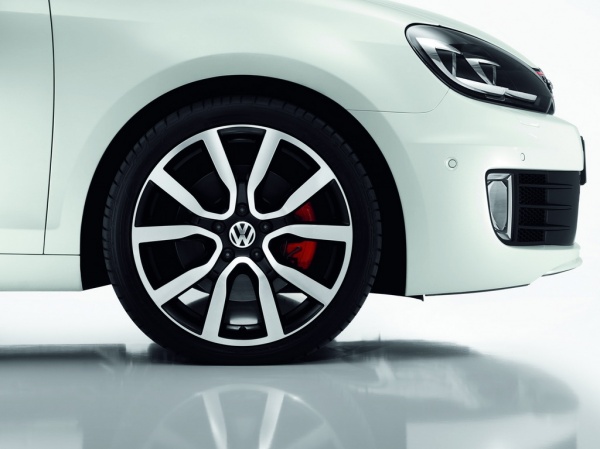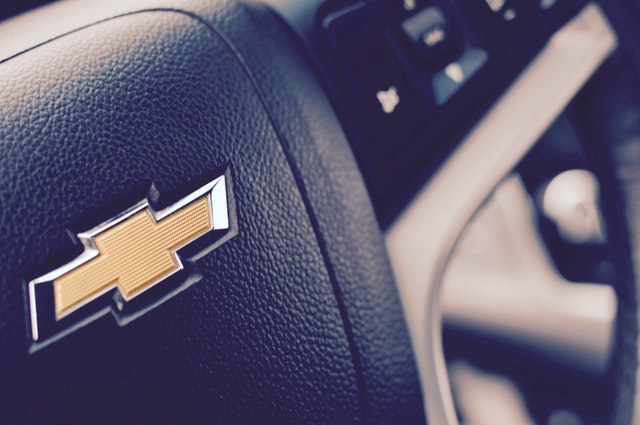How Volkswagen is Redefining the Electric Vehicle
It seems like hybrid and electric vehicles are more and more common these days, and yet few automotive companies are stepping up to the plate to truly aim for the fences. Enter Volkswagen. The German automaker known for combining performance and style has announced four concept vehicles with impressive stats to generate some understandable buzz. Following up on their successes with the Volkswagen e-Golf, Volkswagen brings their craftsmanship and quality to each of these concept vehicles that are redefining what it means to be an electric car. See why Volkswagen’s designs are revolutionizing the automotive industry.

Volkswagen is a disruptor
In business, the word disruptor is often bandied about by companies who claim to have revolutionized their industry. From companies selling whole bean coffee to tech startups in Silicon Valley and beyond, consumers are itching for a company willing to make bold decisions that pioneer the next great era for their industry. From the iconic design of the VW Beetle to their modular building kit allowing them to build vehicles more efficiently, Volkswagen has a knack for taking big leaps forward. This pattern of disruption continues with their concept line of electric vehicles, with each car representing some brilliant advances for the world of environmentally friendly automotives. In a statement announcing the I.D. Buzz, Herbert Diess, the chairman of the board of management for Volkswagen’s brand, said, “The iconic car of the electric age must be a Volkswagen.” With the following features, it’s clear that Volkswagen is game to deliver on such a bold promise.
Volkswagen’s concept vehicles have an impressive range
One of many consumers’ primary concerns with electric vehicles is their range. The idea of running out of power on either a long road trip or running errands to the liquor store isn’t just inconvenient; it’s scary. In the industry, this is known as “range anxiety.” Drivers are used to having plentiful options when it comes to finding a gas station to fill their car up, but electric vehicles need special equipment to charge their batteries. Most experts recommend adding such charging stations every 50 miles or so, but that still causes concern among consumers who would otherwise adopt an electric vehicle. Additionally, charging your car’s battery takes time, which can add to already long travel times during a vacation.
So, what is Volkswagen going to do about this litany of concerns? First of all, each of Volkswagen’s four concept vehicles features an impressive range. The company anticipates the I.D. offering drivers a 370-mile range off of just one charge. Considering typical gas mileage and the cost of gasoline opposed to electricity, that’s a major win for your wallet! It’s also a victory for the environment, so you can add it to your list of Earth-protecting behaviors alongside eating beans and biodiesel recycling. The other concept vehicles are just as exciting when it comes to their respective ranges. The I.D. Vizzion, Volkswagen’s entry into the self-driving car catalog, boasts a 400-mile range with just a single charge.

Volkswagen’s electric concepts charge fast
While range is one important aspect to consider when sizing up any electric vehicle, charge time is equally important. Many factors contribute to a car’s charge time, from the size of the battery and its voltage to the amount of voltage you’re delivering to the vehicle. A car that has to charge for a full 12 hours overnight, like the Chevrolet Volt, can severely limit your driving options. Even cars like Toyota’s Prius Prime, which can take between 2 hours and 10 minutes to 5 1/2 hours to charge, may cause your spontaneous road trip to come to a screeching halt. Thankfully, Volkswagen has mitigated this issue in designing their fleet of electric vehicles. With DC fast-charging, the I.D. Crozz promises to allow drivers to charge its battery to 80 percent in as little as a half-hour.
Performance is a priority
One of the major selling points of any Volkswagen car is its performance. With features like a turbocharged engine coming standard in most vehicles, it’s hard for some to imagine how an electric vehicle could have the same giddyap responsiveness fans of VW have come to expect from their accelerators. Thankfully, horsepower and torque both remain a priority for Volkswagen as they design their electric vehicles. From the I.D. Crozz, which is expected to clock top speeds at 110 miles per hour, to the I.D. Buzz, which will feature a 369-horsepower electric motor, it’s clear that Volkswagen is prioritizing performance.
Style isn’t sacrificed
Another aspect Volkswagen consistently receives high marks on is its design. While some car manufacturers sacrifice aesthetics in the name of environmental friendliness, Volkswagen is sticking to what it does best. With its electric concept vehicles, Volkswagen’s iconic style isn’t just maintained, it’s doubled down on. Take, for example, the head-turning I.D. Buzz, a throwback to the VW Microbus of the 1960s and ’70s. Simultaneously straddling the past and the future, the I.D. Buzz is an automobile that rings true for Volkswagen purists and newcomers alike. From their lush interiors to their eye-catching, sleek exteriors, each concept vehicle shows that it’s possible to look good while doing good, offering drivers the chance to cut back on harmful emissions in style.
Comfort comes standard
Since many electric vehicles command a higher price tag, it’s only fair that their interiors reflect the same level of luxury that a similarly-priced vehicle in a different class would also have. This driver-centric focus is one of the areas Volkswagen consistently excels in, and that’s still the case with their lineup of electric concepts. The I.D. Vizzion offers drivers a specialty “chauffeur mode,” which identifies passengers and adjusts their seats and even plays music based on the car’s occupants. The I.D. Buzz’s interior cabin is spacious and welcoming, making it perfect for plenty of friends and the open road. Driver-focused features continue in concepts like the I.D. that has a retractable steering wheel during autonomous driving, giving you more room and more comfort in the driver’s seat.
When will these cars be released?
If these selling points are making you anxious to get behind the wheel of the I.D. Crozz or Buzz, you’re not alone. Volkswagen claims that they will begin to sell their concept vehicles in 2020, although which quarter the cars will release in is anybody’s guess at this point. One thing’s for sure, though: when the time does come, there will be plenty of electric VWs to go around. According to VW head Herbert Diess, Volkswagen is primed to manufacture 50 million electric vehicles when the time comes.
If you can’t wait until these concepts come out, it’s worth looking into VW’s other entry into the world of electric vehicles, the e-Golf. The e-Golf looks almost identical to a regular Golf, meaning that VW’s distinct hatchback style remains the focal point of the car. While its range isn’t as impressive as Volkswagen’s fleet of concept cars, it performs just like you’d expect the Golf to. Check with a reputable, award winning VW dealership to give the e-Golf a spin with a test drive or learn more about their inventory.
With a history of success, style, and performance, Volkswagen is poised to make electric vehicles as fun-to-drive as they are good for the environment. Prioritizing the characteristics that have made Volkswagen such an iconic brand — performance, style, and comfort — the automaker is changing the game when it comes to electric vehicles. With four exciting vehicles that carry these design philosophies through, the company just might make electric vehicles the car of the not-so-distant future.